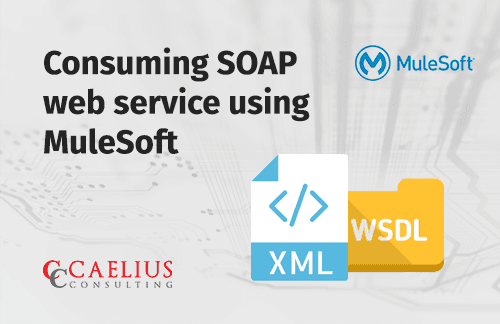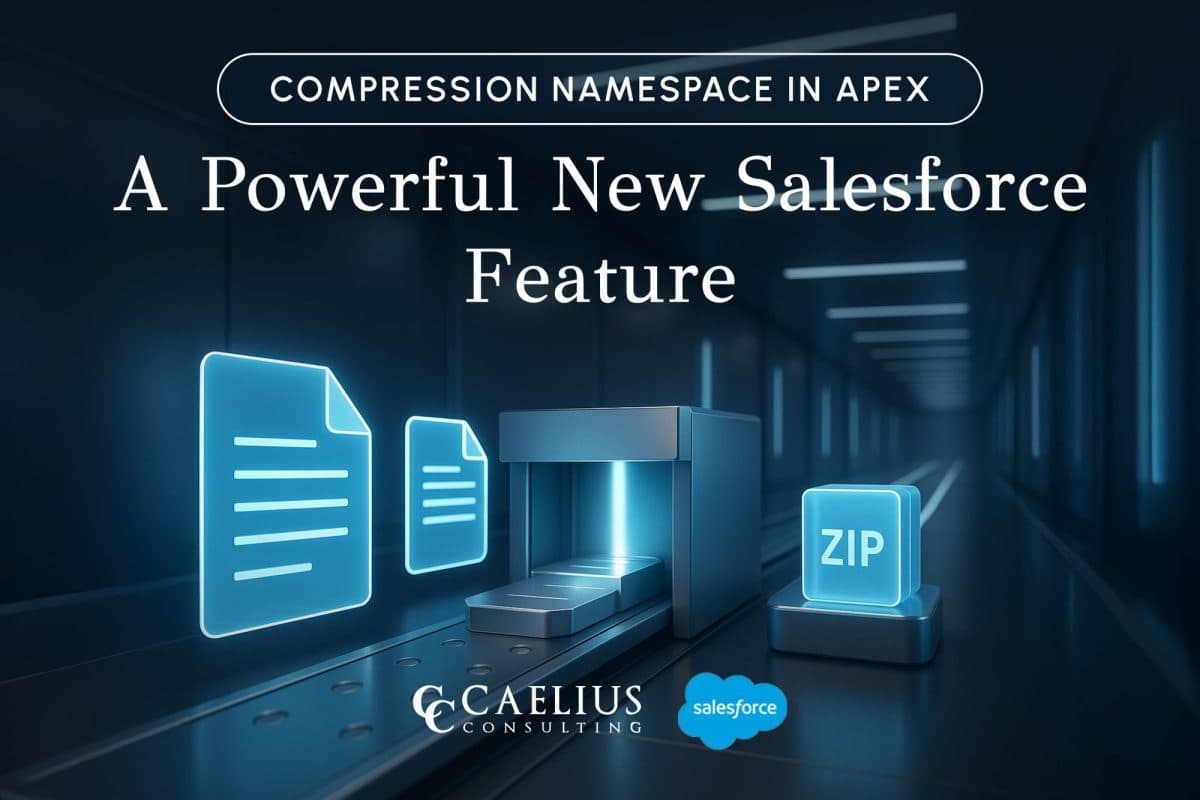Consuming SOAP web service using MuleSoft

This tutorial introduces you to Web Service and creating a high-security consumption of Web Service using SOAP in MuleSoft Anypoint Studio.
What are Web Services?
- Services available over the web are called Web Services.
- Web Services enable communication over the web.
- Provides a standard format/protocol for communication.
- It is a platform-independent communication.
- Using Web Services, two different applications, the first implementation in Java and other implementation on C++, can talk to each other.
For better clarity, we can take the example of ordering food in a restaurant. The waiter acts as a medium between customer and kitchen by conveying the order to chef and getting food delivered over the table. In the same way, a web URL acts as a medium of communication whenever we search or do anything over the Web to get the desired results.
Live Example:


Lets Look at Kayak, an online travel agency and a fine example of web services. When we search for flights on the panel for the flights on desired date and time then our request is redirected to various APIs. All these airlines take the response and check out for flights, their availability and a response is sent back to Kayak from all these airlines. Further, displaying results we get from these APIs in a readable format.
Moving on to SOAP:
SOAP plays a central role in the Service Oriented Architecture (SOA) approach for software design and development
- SOAP stands for Simple Object Access Protocol.
- SOAP is an application communication protocol.
- SOAP is a format for sending and receiving messages.
- SOAP is platform-independent.
- SOAP is based on XML.
- SOAP is a W3C recommendation.
SOAP Message Structure:

WSDL Format:

Advantages of SOAP:
- WS Security: SOAP defines its own security known as WS Security.
- Language and Platform independent: SOAP web services can be written in any programming language and executed in any platform.
Disadvantages of SOAP:
- Slow: SOAP uses XML format that must be parsed to be read. It defines many standards that must be followed while developing the SOAP applications. So it is slow and consumes more bandwidth and resources.
- WSDL dependent: SOAP uses WSDL and doesn’t have any other mechanism to discover the service.
Consuming SOAP through MuleSoft
We are going to consume a SOAP web service and implement different operations with the web service.
[Make sure you have MuleSoft Anypoint Studio 7+ installed on your system.]
Step 1: Make a new project in your Any point Studio by clicking on File>New>Mule Project.

Step 2: Give a Title to the new project. We have named it consuming_soap in this example.

Step 3: Add file module by clicking on add module in the mule pallet as Add Modules>Web Service Consumer.

Step 4: Make the desired flow with the required components shown in the flow below.

Step 5: Set various connectors configuration as below.
You can directly use the XML code from below to set the desired configurations.
<?xml version="1.0" encoding="UTF-8"?> <mule xmlns:apikit-soap="http://www.mulesoft.org/schema/mule/apikit-soap" xmlns:ee="http://www.mulesoft.org/schema/mule/ee/core" xmlns:http="http://www.mulesoft.org/schema/mule/http" xmlns:wsc="http://www.mulesoft.org/schema/mule/wsc" xmlns="http://www.mulesoft.org/schema/mule/core" xmlns:doc="http://www.mulesoft.org/schema/mule/documentation" xmlns:xsi="http://www.w3.org/2001/XMLSchema-instance" xsi:schemaLocation="http://www.mulesoft.org/schema/mule/core http://www.mulesoft.org/schema/mule/core/current/mule.xsd http://www.mulesoft.org/schema/mule/http http://www.mulesoft.org/schema/mule/http/current/mule-http.xsd http://www.mulesoft.org/schema/mule/ee/core http://www.mulesoft.org/schema/mule/ee/core/current/mule-ee.xsd http://www.mulesoft.org/schema/mule/wsc http://www.mulesoft.org/schema/mule/wsc/current/mule-wsc.xsd"> <http:listener-config name="HTTP_Listener_config" doc:name="HTTP Listener config" doc:id="a46b95a3-bc12-4bee-b815-9ee901290d44" > <http:listener-connection host="0.0.0.0" port="8081" /> </http:listener-config> <wsc:config name="Web_Service_Consumer_Config" doc:name="Web Service Consumer Config" doc:id="d2f27227-d308-4984-b881-5dbe05a0a8a8" > <wsc:connection wsdlLocation="http://www.dneonline.com/calculator.asmx?wsdl" service="Calculator" port="CalculatorSoap12" address="http://www.dneonline.com/calculator.asmx"> <wsc:web-service-security actor="http://schemas.xmlsoap.org/soap/actor/next" /> </wsc:connection> </wsc:config> <flow name="soap_serviceFlow" doc:id="81c9f277-86fa-4fd6-b9cf-4f800f4eda87" > <http:listener doc:name="Listener" doc:id="72cb72a0-65ad-4171-92a6-ad1ae121d004" config-ref="HTTP_Listener_config" path="soap"/> <set-variable value="#[attributes.queryParams.Number1]" doc:name="Number1" doc:id="7ed7e420-f957-43ed-ac93-302b5bc44355" variableName="var1" /> <set-variable value="#[attributes.queryParams.Number2]" doc:name="Number2" doc:id="0ac5c0d0-0082-4268-8a51-b2b94f25fdcb" variableName="var2" /> <set-variable value="#[attributes.queryParams.operation]" doc:name="Operation" doc:id="75701e35-3ec6-4c64-b648-b21708cf07c3" variableName="operation"/> <ee:transform doc:name="Transform Message" doc:id="efafe623-01c4-4e3c-93b6-7c9680d29b2b"> <ee:message> <ee:set-payload><![CDATA[%dw 2.0 output application/xml ns ns0 http://tempuri.org/ --- { ns0#Add: { ns0#intA: vars.var1 as Number, ns0#intB: vars.var2 as Number } } ]]></ee:set-payload> </ee:message> </ee:transform> <choice doc:name="Choice" doc:id="9aed1cd0-f11e-44ba-93e1-b95d0a22ffa2" > <when expression="#[vars.operation=='add']"> <wsc:consume doc:name="add" doc:id="3f71cbd8-7c83-432f-9dca-949f9545f77d" config-ref="Web_Service_Consumer_Config" operation="Add"/> </when> <when expression="#[vars.operation=='divide']"> <wsc:consume doc:name="Divide" doc:id="fde17eab-4c99-4242-b3b0-72bf02e48f0a" config-ref="Web_Service_Consumer_Config" operation="Divide"/> </when> <when expression="#[vars.operation=='multiply']"> <wsc:consume doc:name="Multiply" doc:id="18da7485-4651-46cd-8f04-bc9500448e13" config-ref="Web_Service_Consumer_Config" operation="Multiply"/> </when> <when expression="#[vars.operation=='subtract']"> <wsc:consume doc:name="Subtract" doc:id="b8ca06e4-8612-45ee-99ad-4d480785d047" config-ref="Web_Service_Consumer_Config" operation="Subtract"/> </when> <otherwise > <set-payload value="Invalid Operation" doc:name="Set Payload" doc:id="f20c4877-0a1e-40b7-8b8f-b385f1d436bf" /> </otherwise> </choice> </flow> </mule>
Step 6: Hit the URL from postman to see the output we want.

Wrapping Up:
Consuming SOAP web service using MuleSoft is as easy as getting results from the web by searching anything. It is also a high security consumption of web service as we are using SOAP web service. Any MuleSoft Developer can use this flow to consume the SOAP web service using MuleSoft.
Find more MuleSoft best practices here at : https://staging.caeliusconsulting.com/
Recent Blogs

AI-Driven PDF Parsing in Salesforce
Introduction For the current digital ecosystem, data is an important aspect for decision-making. Yet, for many organizations, a significant portion of this valuable data remains locked away in unstructured formats. Organizations handle thousands of PDF documents daily — ranging from contracts and invoices to lab reports, quotations, and service agreements. Traditionally, extracting structured data from… Continue reading AI-Driven PDF Parsing in Salesforce
AI-Driven PDF Parsing in Salesforce
Introduction For the current digital ecosystem, data is an important aspect for decision-making. Yet, for many organizations, a significant portion of this valuable data remains locked away in unstructured formats. Organizations handle thousands of PDF documents daily — ranging from contracts and invoices to lab reports, quotations, and service agreements. Traditionally, extracting structured data from… Continue reading AI-Driven PDF Parsing in Salesforce

Compression Namespace in Apex: A Powerful New Salesforce Feature
Introduction Working with documents inside Salesforce has always challenged developers because of the platform’s multitenant constraints. Previously, packaging and sending files in a compact form required external services, like an AWS Lambda function, that retrieved files via API and then compressed them. With the introduction of the Compression Namespace and the powerful pre-defined Apex functions,… Continue reading Compression Namespace in Apex: A Powerful New Salesforce Feature
Compression Namespace in Apex: A Powerful New Salesforce Feature
Introduction Working with documents inside Salesforce has always challenged developers because of the platform’s multitenant constraints. Previously, packaging and sending files in a compact form required external services, like an AWS Lambda function, that retrieved files via API and then compressed them. With the introduction of the Compression Namespace and the powerful pre-defined Apex functions,… Continue reading Compression Namespace in Apex: A Powerful New Salesforce Feature

Boost LWC Performance with Debouncing
Introduction Lightning Web Components (LWC) is a modern framework for building fast and dynamic user interfaces on the Salesforce platform. However, one common challenge in web development, including LWC, is efficiently handling user input, especially when dealing with rapid or repetitive events, such as typing in a search field. This is where debouncing becomes an… Continue reading Boost LWC Performance with Debouncing
Boost LWC Performance with Debouncing
Introduction Lightning Web Components (LWC) is a modern framework for building fast and dynamic user interfaces on the Salesforce platform. However, one common challenge in web development, including LWC, is efficiently handling user input, especially when dealing with rapid or repetitive events, such as typing in a search field. This is where debouncing becomes an… Continue reading Boost LWC Performance with Debouncing

Salesforce Pricing Automation: Boost Efficiency And Accuracy with Apex Triggers
Introduction In order to succeed in today’s fast-paced business landscape, precision and speed define competitive advantage. For businesses, especially those managing complex product catalogs, ensuring accurate pricing on sales orders or custom lines can be a time-consuming and error-prone task. To overcome this challenge, Salesforce trigger handlers offer a powerful solution to automate the entire… Continue reading Salesforce Pricing Automation: Boost Efficiency And Accuracy with Apex Triggers
Salesforce Pricing Automation: Boost Efficiency And Accuracy with Apex Triggers
Introduction In order to succeed in today’s fast-paced business landscape, precision and speed define competitive advantage. For businesses, especially those managing complex product catalogs, ensuring accurate pricing on sales orders or custom lines can be a time-consuming and error-prone task. To overcome this challenge, Salesforce trigger handlers offer a powerful solution to automate the entire… Continue reading Salesforce Pricing Automation: Boost Efficiency And Accuracy with Apex Triggers